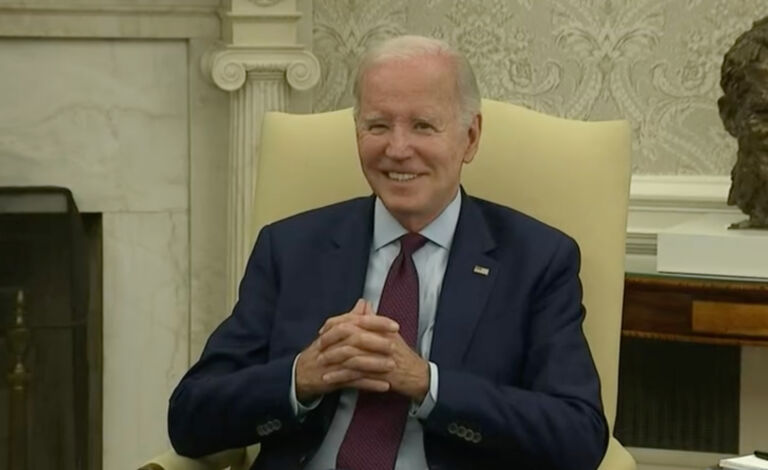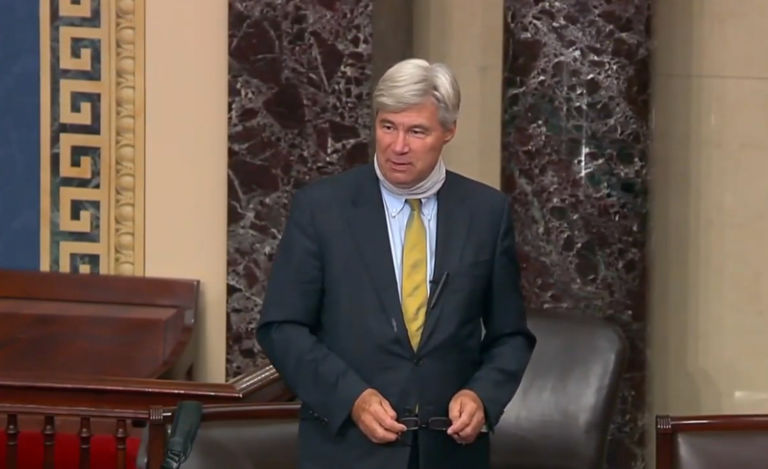The clause appears in Article I, Section 1:
We hold it to be self-evident that all persons are created equal; that they are endowed by their Creator with certain inalienable rights; that among these are life, liberty, the enjoyment of the fruits of their own labor, and the pursuit of happiness.
It formed the basis of the N.C. Supreme Court’s recent decision, in Tully v. City of Wilmington, to deny the City’s motion to dismiss a lawsuit by a police officer who claims he was wrongfully denied promotion.
Judging by the facts cited by the Court, Tully appears to have been a remarkably successful officer:
The Wilmington Police Department … hired Tully in 2000 and promoted him to corporal in 2007. At the time this complaint was filed, Tully was a member of the violent crimes section and had investigated more than fifty homicides and served as lead investigator in at least 12 of those cases, which had a 100% clearance rate. Tully holds an associate’s degree in Applied Science in Criminal Justice and Protective Services Technology and a bachelor’s degree in Criminal Justice and has received his Advanced Police Certification from the North Carolina Criminal Justice Education and Training Standards Commission. He was named “Wilmington Police Officer of the Year” in 2011.
Despite this impressive record, Tully was denied promotion to sergeant because he failed the promotion exam. In his complaint, Tully claimed that:
[He] had based his answers on the prevailing law at the time, and, after receiving a copy of the official examination answers, he discovered that the official answers were based on outdated law. Tully filed a grievance regarding this discrepancy through the City’s internal grievance process but was informed in a 3 January 2012 letter from City Manager Sterling Cheatham that “the test answers were not a grievable item.” A supervisor also told Tully that “[e]ven if you are correct, there is nothing that can be done.”
But, noted Tully:
Directive 4.11 of the [Department’s] Policy Manual states that “[t]his policy establishes uniform guidelines that govern promotional procedures within the Wilmington Police Department and ensures procedures used are job-related and non-discriminatory.” … “[Examination] instruments used shall have demonstrated content and criterion validity, which is accomplished by contracting with qualified outside entities to develop the written testing instruments. Instruments will assess a candidate’s knowledge, skills, and abilities as related to the promotional position.” … The “Grievance and Appeals” section of Directive 4.11 provides the following:
Candidates may appeal any portion of the selection process. The appeal must be made consistent with the City of Wilmington Personnel Policy on Employee Grievances.
If practical, re-application, re-testing, re-scoring and/or re-evaluation of candidates may be required if an error in the process is substantiated.
Tully went on to claim, among other things, that:
By denying [his] promotion due to his answers on the Sergeant’s test and then determining that such a reason was not grievable, the City arbitrarily and irrationally deprived [him] of enjoyment of the fruits of his own labor, in violation of the North Carolina Constitution.
The Supreme Court agreed:
Section 1, Article I, of the Constitution of North Carolina guarantees to the citizens of the State “the enjoyment of the fruits of their own labor” and declares this an inalienable right.
The basic constitutional principle of personal liberty and freedom embraces the right of the individual to be free to enjoy the faculties with which he has been endowed by his Creator, to live and work where he will, to earn his livelihood by any lawful calling, and to pursue any legitimate business, trade or vocation. This precept emphasizes the dignity, integrity and liberty of the individual, the primary concern of our democracy. …
The City here correctly notes that cases involving the right to pursue one’s profession free from unreasonable governmental action generally involve the government acting as regulator or sovereign rather than as an employer. … Nevertheless, we are persuaded that Article I, Section 1 also applies when a governmental entity acts in an arbitrary and capricious manner toward one of its employees by failing to abide by promotional procedures that the employer itself put in place.
(Citations and quotation marks are omitted from the excerpts that appear above.)
As constitutional law scholar Eugene Volokh observed in a recent piece about the case, two features make the Supreme Court’s decision in Tully v. City of Wilmington remarkable:
The court expressly stressed that it was not relying on substantive due process or on the equal protection clause, but relied solely on the Fruits-of-Their-Labor Clause. And … the Clause can be used by private businesses that want to challenge economic regulations as well.
It is also worth noting that the decision bodes well for the North Carolina’s craft brewers. In a lawsuit filed last year, a group of them have challenged the state-supported wholesale distribution cartel. They claim a law forcing them to hand the distribution part of their businesses over to the cartel violates their right to the fruits of their labor.


